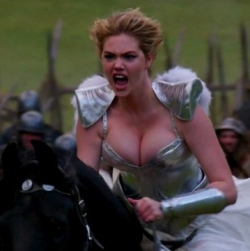A federal judge in Maryland ruled recently that losses in a virtual casino should not be considered a “real world” problem. The judge was referring to a class-action lawsuit brought by a Maryland woman, Mia Mason, who sued a California company named Machine Zone for its world-building game, “Game of War“.
In dismissing the case, the judge seemed to have some fun with the concept of virtual casino gambling in an online environment.
Machine Zone is the software developer which designed “Game of War”, a free-to-play gaming app which allows people to spend real world money to buy virtual gold. This gold can be wagered within the gaming world for virtual advantages, but cannot be cashed-out for real world money.
“Game of War” Freeplay App
Game of War is playable for free on Android and Apple iOS devices, including smartphones and tablet computers. Mobile players are given the ability to “create virtual towns and armies, and battle other Game of War players“.
A $4.99 buy-in provides a player with 1200 virtual gold pieces. A $99.99 contribution provides a whopping 20,000 gold pieces. This money can be used to upgrade ones towns and armies, which are then used for empire-building.
“Casinos” in Game of War
At special sections in the gaming zone, players are allowed to place wagers. This takes place in an area marked “Casino”. The virtual gold and “chips” can be used to make in-game wagers on a spinning wheel game. When the wheel stops spinning, players can win virtual representations of various products and commodities, including wood, chips, stone, and gold.
Mia Mason alleged in her lawsuit that Game of War’s algorithm is causing players to win the less-valuable (in-game) prizes like wood or stone, instead of the more valuable ones, like gold.
The lawsuit alleged, “While players can use Gold to improve their virtual towns and hasten their advancement in the game, these benign uses of Gold merely obfuscate the unlawful game of chance Machine Zone operates within Game of War.”
Virtual Slot Machines?
The motion added that the casino gaming can be converted into real world money in an indirect way, by placing “Game of War” accounts up for sale. The lawsuit claimed, “Players that win the most valuable prizes can then ‘cash out’ by listing their Game of War accounts on the secondary market, with the cash value of accounts rising commensurate with the value of awarded prizes. Game of War accounts listed at online auction sites regularly sell for hundreds of dollars.”
For this reason, her lawsuit termed the Game of War spinning wheel game a virtual “slot machine or device”. Mia Mason says she lost $100 on the game, which is rigged to make people lose that money without the possible compensations which are offered. She claims countless others lost similar amounts of cash, and called for those gamers to join the class-action lawsuit.
Judge Bredar Gives His Opinion
James Bredar, a U.S. District Judge for Maryland, disagreed with the plaintiff’s arguments. Judge Bredar said the lawsuit lacked merit, because the filing lacked “allegations of real-world harms or injuries“.
Bredar’s legal opinion read, “On the surface, [the] plaintiff charges that defendant trampled real and important rights and interests of her, wrongfully and unlawfully, in an alternative, virtual world created by an electronic game. But a careful probe beneath the surface reveals a hodgepodge of hollow claims.”
The Maryland-based judge continued by saying the case did not rise “to the award of a private monetary remedy by a real-world court.”
He added that if one were to apply Mason’s standard to real world games, then pinball also would be considered an illegal gambling device.
“The Imaginations of Children and Ardent Game Enthusiasts”
Bredar continued, seeming to find humor in the case. He said that ruling for Mia Mason in the case would put him in the “unenviable position of pricing the conversion from virtual gold and chips, to virtual wood and rock“.
He then added, “Such whimsical undertaking may spark the imaginations of children and ardent game enthusiasts, but it can have no place in federal court.”

